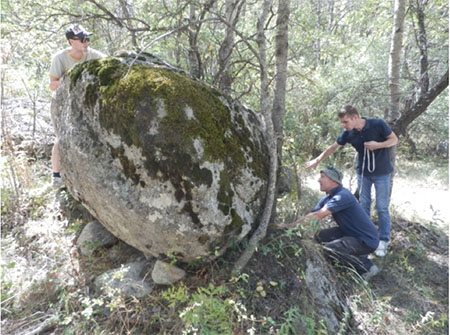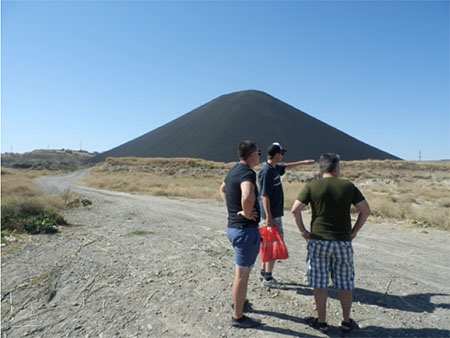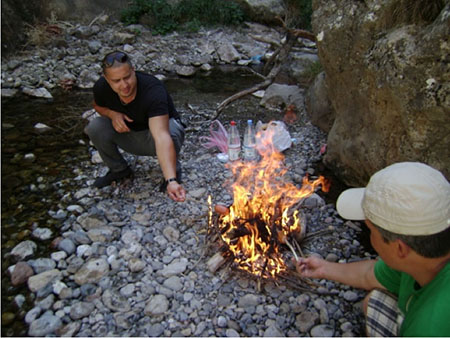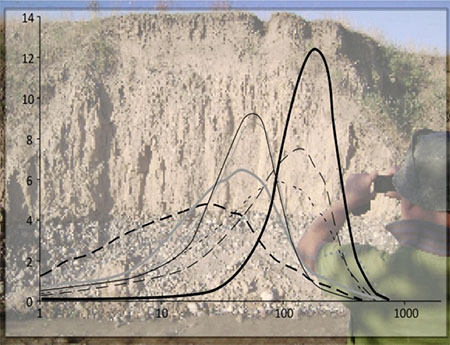Developing water resources management in southern Kazakhstan to mitigate the societal impacts of rapid climate change

Newton al Farabi project (2015-2017), funded by the British Council
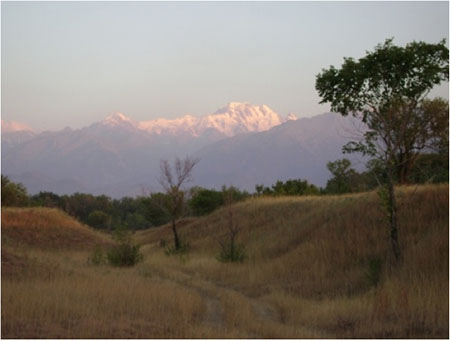 The population of southern Kazakhstan is almost entirely dependent on water supply from the glaciers and snowfields of the Pamir and Tien Shan Mountains. Repeated environmental crises in antiquity, during the Soviet period and recently catastrophic flooding have shown that river systems and irrigation-based agricultural communities are especially susceptible to short-term climate change. Over extraction of water, land privatisation and major demographic changes have increased the vulnerability of the regional population to global food price fluctuations, and pose unique societal challenges given uncertain climate and economic predictions for the next decades. This Newton-al Farabi (Institutional Links project funded by the British Council) collaborative project aims to find sustainable solutions to these pressing societal problems by developing an evidence-based, integrated water resources management strategy for the region. It adopts a multi-disciplinary approach incorporating fluvial geomorphology, climatology, forestry and ecology, hydrology, flood risk management, water quality assessments, and international law and policy. The latter will ensure that research data is transformed into information that can be used to assess and mitigate water resources problems. From 2015-2017, fieldwork campaigns will be carried out to collect hydroclimatic data on climate change impacts. This allows us to: (i) reconstruct regional river and catchment responses to recent and historical climatic fluctuations; (ii) evaluate the effects of recent anthropogenic activities on water quality in these regions; (iii) assess current flood risk and community vulnerability to drought; and (iv) mitigate these problems by producing policies that improve water stress resilience - all based on local evidence and expertise. UK water science experts will collaborate with local Kazakh institutes and experts, with involvement of early career scientists and graduate students to maximise knowledge transfer and to train the next generation of Kazakh water resources managers.
The population of southern Kazakhstan is almost entirely dependent on water supply from the glaciers and snowfields of the Pamir and Tien Shan Mountains. Repeated environmental crises in antiquity, during the Soviet period and recently catastrophic flooding have shown that river systems and irrigation-based agricultural communities are especially susceptible to short-term climate change. Over extraction of water, land privatisation and major demographic changes have increased the vulnerability of the regional population to global food price fluctuations, and pose unique societal challenges given uncertain climate and economic predictions for the next decades. This Newton-al Farabi (Institutional Links project funded by the British Council) collaborative project aims to find sustainable solutions to these pressing societal problems by developing an evidence-based, integrated water resources management strategy for the region. It adopts a multi-disciplinary approach incorporating fluvial geomorphology, climatology, forestry and ecology, hydrology, flood risk management, water quality assessments, and international law and policy. The latter will ensure that research data is transformed into information that can be used to assess and mitigate water resources problems. From 2015-2017, fieldwork campaigns will be carried out to collect hydroclimatic data on climate change impacts. This allows us to: (i) reconstruct regional river and catchment responses to recent and historical climatic fluctuations; (ii) evaluate the effects of recent anthropogenic activities on water quality in these regions; (iii) assess current flood risk and community vulnerability to drought; and (iv) mitigate these problems by producing policies that improve water stress resilience - all based on local evidence and expertise. UK water science experts will collaborate with local Kazakh institutes and experts, with involvement of early career scientists and graduate students to maximise knowledge transfer and to train the next generation of Kazakh water resources managers.


